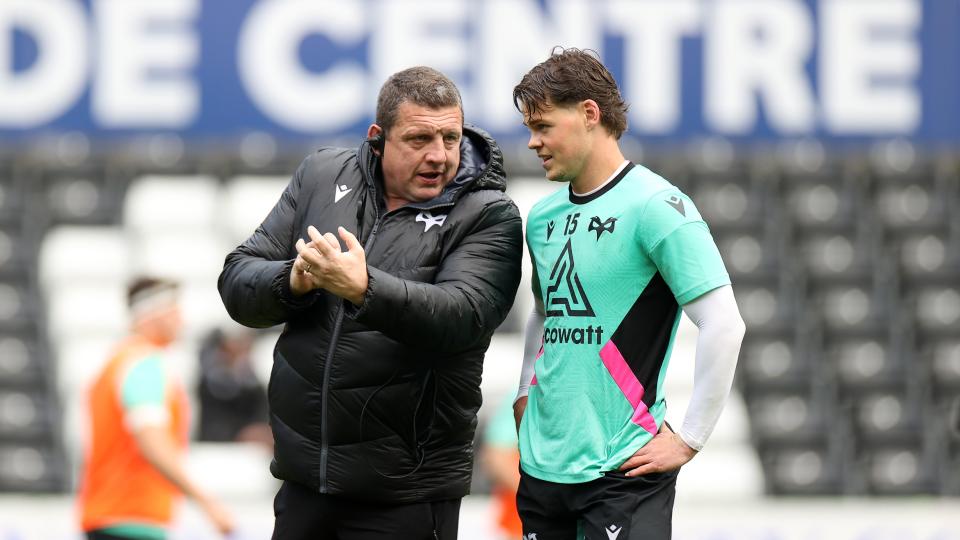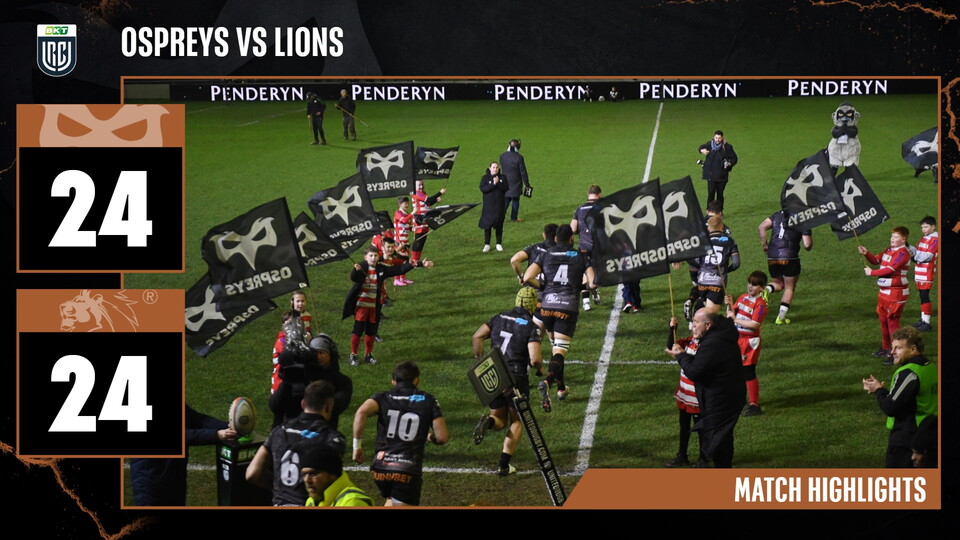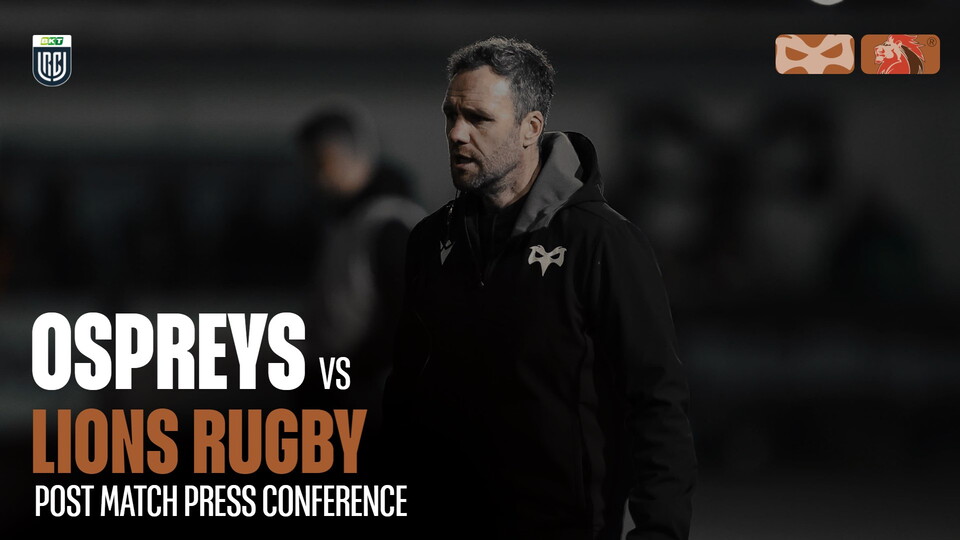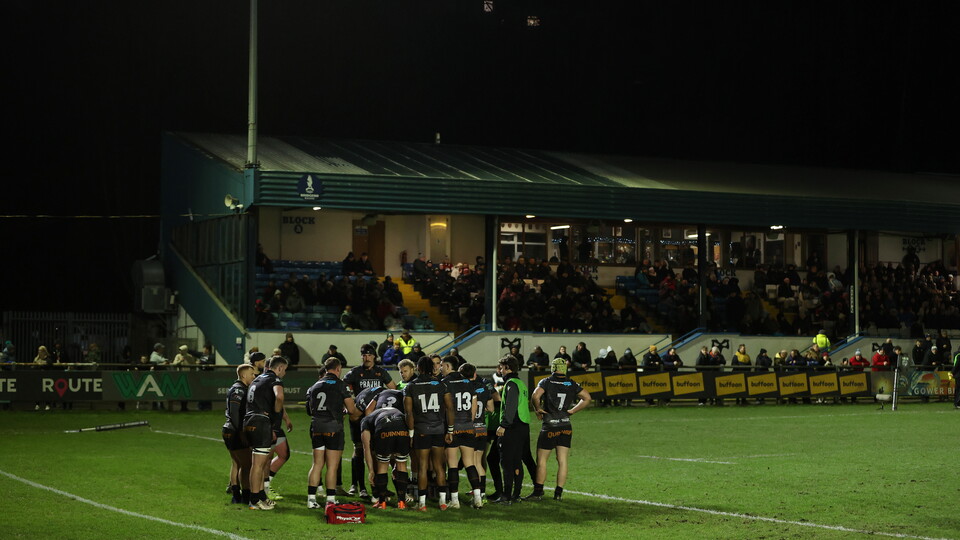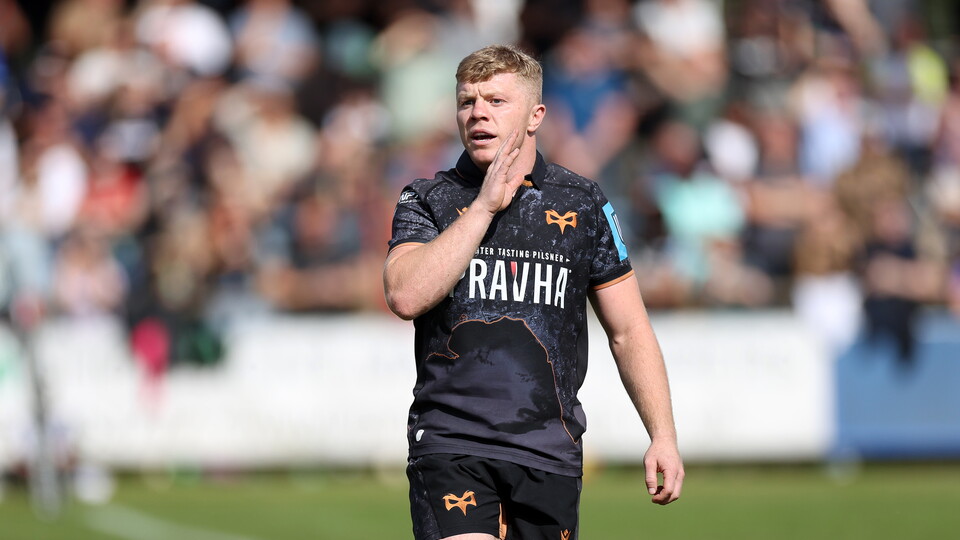It’s rare that a rugby interview begins with quickfire references to Matthew Syed’s Black Box Thinking, Malcolm Gladwell’s Outliers, and Bloom’s Taxonomy, but then Toby Booth is not your average rugby coach.
He may have been a nuggety back-row forward in his playing days for Folkestone and Blackheath, but his appearance belies his approach. Beneath those craggy features lies a whirring brain, crammed with ideas and insights. He’s the very definition of a cerebral coach; as fascinated by human behaviour as by what goes on between the white lines.
Much is spoken about the way modern players are indoctrinated from an early age. Groomed by academies, and consumed by rugby, they can lack the emotional hinterland to thrive in the real world. Booth is on a mission to overcome this. Catching up with him after a training session conducted in relentless south-Walian drizzle, he was in typically upbeat mood.
“You’ve heard of Simon Sinek?” he asks, referring to the American author who runs ‘The Optimism Company.’ “He knows a lot about higher purpose and the journeys of people and organisations” Booth continues, revealing how much his theories have influenced his thinking; “Getting a team to do what you want means being clear about where you’re trying to get. It’s like flying 40 helium-filled balloons from one side of the room to another. They’re going go off this way and that, so we have to cajole them to go the right way.”
Man-management is arguably the most important aspect of coaching. Beyond the rugby stuff, leaders have to manage a disparate group of individuals, all of whom have different anxieties, issues and stimuli. It’s never a one-size-fits-all approach. “With older players for example, they’ve got more distractions in their life, and less motivation because they’ve been there and done it. If you’re not careful – and this happened to me at Bath – someone’s balloon starts drifting and that person is faced with a choice; do I go back to the common good and pull in the same direction, or do I look for similar soft ears and try to pull the next balloon with me.”
During what is a particularly turbulent period in Welsh rugby, when squads have shrunk, budgets are being squeezed, and victories are proving hard to come by, unity can be difficult to maintain. Those “soft ears” can quickly lead to disharmony and that, says Booth, is when you “lose the dressing room.”
So how does he keep those balloons floating in the same direction? The answer, he says, is identity. The Ospreys may not be winning every week, but there’s a sense that they have a plan and they’re working together to achieve it. “When I arrived here three years ago, I felt a duty to try to play attacking rugby, because we’re in Wales, and I think that’s what the country wants and deserves.”
This may come as surprise to those who consider the Ospreys the more conservative of Wales’ four regions, but the figures back him up: In his first year they scored 34 tries, in his second, 46, and last year produced a yield of 52. At the halfway stage of this season, they’ve racked up 30, so are on course to improve again. They’re not scoring boatloads of tries like some of the teams above them, but their approach is beginning to pay dividends. Conversely, their defence was in freefall, with the number of tries conceded also going up season-on-season until assistant coach Mark Jones arrived to help plug those holes.
It’s this bigger picture he keeps reminding his players of. It was always going to be a long-term project, and that’s something his employers recognised from the start. Initially, he signed a contract for three years but “they made it five before I’d kicked a ball because they thought I was the right person for the job. That allowed me the space to create what I said I was going to do. You’re never guaranteed to see it through – professional sport’s volatile, but they believed in me, and I’ve repaid that faith. It’s a different conversation if you’ve got a two-year deal.”
Even if you’re able to see the bigger picture, the “minutiae” of Welsh rugby can, in Booth’s words, “drag you in to the swamp”. It’s an affecting metaphor for the gloop of negativity Welsh rugby is often mired in, and at a time when the game is struggling on the pitch, it’s easy for those whose glass is half-empty to persuade themselves that it’s actually completely drained.
Booth – an outsider – has no truck with such pessimism. “I won’t have it” he says, defiantly. “I won’t have the word ‘survival’. It’s a case of, what do we do to thrive, not survive? It’s easy to be consumed by negativity but we’ve got a job to do. We have a choice, right leg or left leg first, one step in front of the other. If you don’t like it, there’s something else over there.” After a pause, he admits, “I do have my dark moments. The thing that makes sport great is the emotion that goes with it. But emotion in the wrong place puts you down the rabbit hole.”
It’s at this point he brings up the Bloom’s Taxonomy coaching model. For those who want to study it, there are reams of information on the internet, but Booth breaks it down simply. There are six levels of objectives: Knowledge, Comprehension, Application, Analysis, Synthesis, and Evaluation. The first three, he explains, are just “repeat what you told me to do, and very much the tell and knowledge part. 4,5,6 is ‘can I interpret what’s happening, can I act on it, what’s the contingency?’ During pre-season, we did a lot on culture, and trying to turn us into a ‘4,5,6’ team.”
With the help of his mentor – the former Wales coach, Kevin Bowring – Booth developed a leadership programme in which the players “own the second half of the week”. The coaches feed them all the information in the first half, and encourage them to lead in the second, with the players outlining and articulating the game plan to their teammates. Bowring – who knows a thing or two about coaching – reckons the Ospreys are now “light years” ahead of where they started when Booth took over.
This may not sound especially revolutionary, but Booth says it was a significant break with the norm, where “we had existing leaders who would lead by example but couldn’t stand up in the classroom and talk to people. Beardy for example, was always lineout leader by default, but some of the more established international players would rather sit in the back and say nothing.” That sense of agency has now permeated the entire squad. “Adam Beard has been the standout”, he says, wondering aloud how he missed out on the Wales captaincy, “Dewi Lake always had it in him, and someone like Owen Watkin has come such a long way.
In addition to the regular forwards, backs, attack and defence groups, they’ve created a “performance group”, focused on more abstract notions of improving performance which takes in things like training methods and matchday travel. Then there’s the so-called Tully group – named after the House of Tully in Game of Thrones and led by Keelan Giles – which looks after people off the field, dealing with commercial and media appearances and the social side of things. All of these groups give everyone a chance to contribute to the greater good. “My job” he says with a wry smile, “is to make myself redundant.”
There’s an awareness too, of wider cultural shifts. The age of the belligerent, ogre-like head coach is over; “you have to be softer, more connected, and have empathy” he says. “If you lose your rag on a regular basis, it just becomes white noise.” That’s not to say there aren’t still occasions when an old-fashioned bollocking is required, just that it’s a weapon to be deployed sparingly. Sometimes, Booth is confrontational, accusing players of not doing what they’d agreed they would, at other times he’s “more calm, quiet and controlled. You’ve got to pull the right club out of the bag.”
“If we make errors in a pressurised environment, we understand collectively that that’s part of getting better. But if someone’s not mentally switched on, didn’t physically work hard enough, or didn’t look at their clips, and study the opposition, that’s not acceptable.”
He also has to tailor his approach according to the individual. In a world of TikTok, instant gratification and shrinking attention spans, a teenage academy kid will absorb information differently to a 35-year old veteran. “Some people” he says, “are freaks and un-coachable. Olivier Magne at London Irish was similar to Justin Tipuric in that they’re most gifted players I’ve ever seen. They do things their position doesn’t warrant them to do – kick, pass, subtle skills – but Tips will know every part of his role, whereas ‘Charlie’ (Magne) would just read body language and make it up.” At the time, it would cause Booth to “pull his hair out”, but experience has taught him that different players have different emotional levers.
It won’t surprise you to learn that in a former life, Toby Booth was a university lecturer. His eye for detail and academic rigour has clearly informed his coaching style and led him to the so-called triangle theory. The three points on the triangle offer three views: the satellite, the helicopter, and the microscope. He controls the satellite which, as its name suggests, affords the widest perspective. His assistants (Mark Jones, Rich Kelly, Duncan Jones and Richard Fussell) are the ones hovering in the helicopter, looking after structures and processes. “Then the microscope bit” he explains, “is the capability of the people you expect to do it, so we need to grow that capability in order to facilitate that. Todd Blackadder used to tell me, it’s not the helicopter that will fail you, it’s the other two. It’s the people trying to do it that will fail you because they either can’t do it, don’t know how to, or aren’t connected enough. My job is to keep it all linked up.”
Hearing the passion with which Booth speaks, and the level of care and attention he invests, all rather flies in the face of Warren Gatland’s comments about regional rugby resembling a “sinking ship”. Gatland has since rowed back, insisting any criticism was aimed at the failing infrastructure, and not the coaches. Booth referred to his intervention as “clumsy and inflammatory.”
Both sides have since acknowledged that raising such issues can lead to positive debate, but what isn’t subject to debate is the ever-decreasing salary cap. The Ospreys’ wage bill has dropped from £7.4m to £5.2m, and will drop to £4.5m next season.
No one bar the French seems to be isolated from the icy financial draughts blowing through the game, but if there’s something Booth and Gatland agree on it’s that more money won’t necessarily solve everything. Asked what he’d think if his owners, Y11 Sports and Media, offered to pump more in, he was circumspect, arguing you could just end up paying more money for the same players. “If you’re asking me, do I want two million more to spend, the answer’s yes, but I’d want it more around marquee and protection of players because there are a few things hidden in the reeds people don’t know about it.” He’s referring to an alleged clause in the participation agreement between the WRU and the regions about debt liability. If one region were to fold, he says, the remaining three would be forced take on their debt. So the growth of one region could accelerate the decline of another, plunging them all into uncertainty.
Instead of dreaming about magic money trees, Booth is concentrating on what he can control, including an innovative player-exchange programme with the Cheetahs, and an emphasis on “growing his own” players. The Cheetahs initiative was spearheaded by Y11 and the Ospreys’ former chief executive, Nick Garcia, who’d overseen a similar model at Manchester City. “It makes sense” says Booth. “You have players when you need them, you can share the exposure and the financial burden, and your money goes further.”
All this reinforces the need to keep the supply line going, because in this environment, players will get better, and become more expensive to hold onto. If new models are rolling off the conveyor belt, it eases the pain of losing a big star. “George North is a prime example” he says. “We had no choice (but to let him go). Now if you offered me a marquee player with the opportunity of him being funded by somebody else, I’d be able to go there. We’re definitely going to lose at least one more, but because of what we’ve done before we’re hoping the gap’s not as big. We’re still going to need to be creative around certain elements because going down and staying competitive is going to be hard. But thank God we’ve done what we’ve done because otherwise we’d have no chance.”
Developing from within is something Booth has always been passionate about. It was a policy he encouraged at London Irish, and one he continues to push today. “We started doing that deliberately three years ago, so we’re ahead of the curve. We’re already on our second wave of youngsters.” Dewi Lake, Morgan Morris, Will Griff, Rhys Davies, Reuben have all become established first-choice players. “We’re now looking at the likes of Morgan Morse, Garyn Philips, and Lewis Lloyd. They’re the next lot. Yes, we’re deficient in certain areas, and that means we’ll have to rely on a promising youngster, as opposed to an out-and-out match-winner, but then others might move on and you’re like, right we’ve got some money to spend.”
The big news story that’s set tongues wagging at the Ospreys since the turn of the year has been their decision to move house. Next season will be their last at the Swansea.com Stadium. It’s long been a bone of contention that they have to play in a cavernous 20,000-seater that’s rarely more than a third full, and do so as mere tenants. When Swansea City play at home and there’s a fixture clash, the Ospreys are turfed out, as happened on New Years’ Day when they played Cardiff at Bridgend’s Brewery Field.
What followed – depending on your opinion – was either a glorious throwback to muddy fields and amateur values, or a spectacle entirely unsuited to modern professional rugby. That aside, public opinion seems overwhelmingly behind the decision to move, with Booth calling it “the easiest decision in the world.”
He’s already experienced both extremes; as head coach of London Irish, he saw attendances at the 24,000 seater Madejski Stadium slump to around 5,000, before he moved to Bath, the epitome of a “city club”. There, he saw the benefits of a stadium that’s right in the heart of the community rather than accessed from a motorway junction. “If we can get the game right, the venue right, and the experience right, more people will want to come and be part of it.”
We’re at a critical juncture in the Ospreys’ evolution, and he knows it’s key they get it right because, “people are demanding more from their disposable income, because they can always ‘swipe left’ and get gratification another way.”
Of the two likely destinations – The Brewery Field, and Swansea’s St Helens – he doesn’t have a preference but says Wales’s wet and windy climate makes an indoor training barn an absolute necessity. The way this Ospreys team is trying to play means “you can’t have a stadium with open ends, because if you want be that team, we’ll go back to being Sarries five years ago and kick and chase everything.”
That the style of play is a factor will be music to the ears of Ospreys fans desperate to see the ball in the hands of their attacking weapons more often. “We’re not as big as the others (in the league) so we we’ve worked out that we need to play fast. We don’t generally lose games where ball in play gets above 38, 39 mins, so we’ve had to tailor our approach to keep ball in play time high. The modern game is about how you load the dice in your favour, and your selections have to reflect that.”
As he drains the last of his coffee, Booth circles back to an earlier theme. That of co-operation. It’s often said that Wales’s size is both a strength and a weakness. He believes the former to be true. If the regions are part of a bigger ecosystem, doesn’t it make sense for them to co-operate? They’ll always be fierce rivals on the pitch, but off it, they can help each other out. “We’re training against each other these days, we’re sharing IP, we’ll text each other when we win games against other opposition. That would never have happened before” he declares. “I’m an open book, anyone can come in and watch us train. You can have my playbook if you want, but you still have to figure out a way to beat us.”
